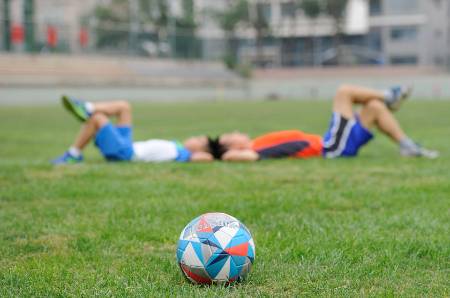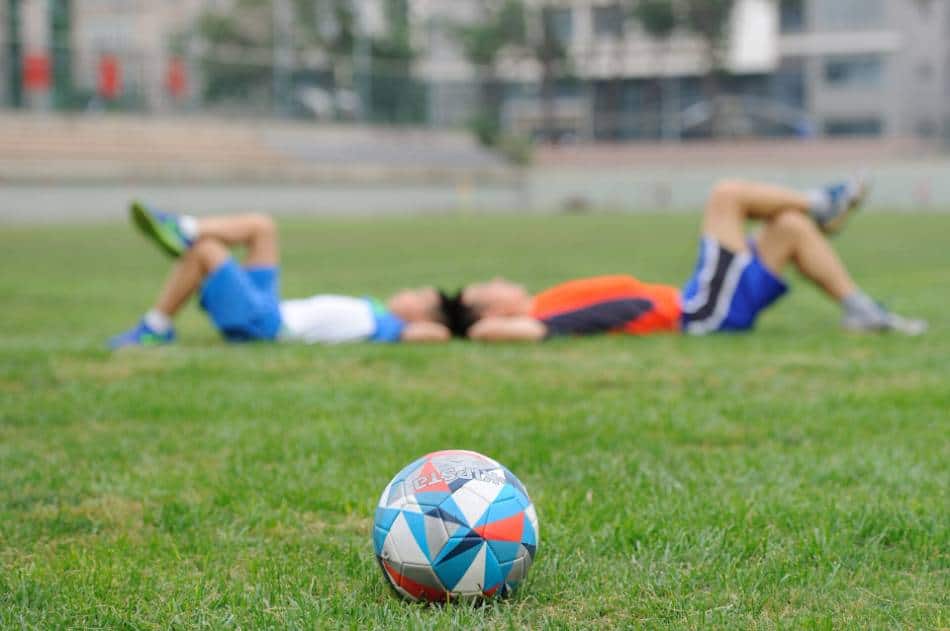
Sports aren’t just for our viewing entertainment. People of all ages and skill levels can play sports with friends at the park or in a local league. For kids, sports can teach valuable life lessons, create healthy habits, and help them grow into responsible adults.
The physical benefits of playing sports include promoting an active lifestyle and better overall health. Socially, kids should play sports because they can make friends and improve their communication skills. Sports also help with performance in the classroom!
Here are 13 reasons why kids should play sports:
Adversity
Life is full of adverse situations. Whether it’s school, work, family, or sports, not everything will go exactly how you want it to go. Kids should play sports because they’ll learn lessons in dealing with adversity.
If you can deal with adversity in youth sports, you can use these skills in other aspects of life. Here are some examples of adversity in youth sports and how to take them on:
- Losses: Nobody like to lose, but most sports have one winning side and one losing side. Competition is a core part of sports. Staying confident in oneself after a loss is an example of handling adversity well.
- Not playing your best game: It’s easy to get discouraged when you miss shots you usually hit or fail to make plays that you always make in practice. While this is frustrating, kids can make important sports team contributions when they’re struggling on offense. In basketball, you don’t need to be a good shooter to box out opponents and rebound missed shots. In baseball, you can make up for striking out by hustling to field a ground ball.
- Teammates not playing well: Everybody has an off-day from time to time. As a competitor, you can let this affect your play or you can try to keep things positive. As mentioned in the point above, give maximum effort – it sets a good example for your teammates! If a teammate looks visibly frustrated about their play, be reassuring – show that you’re there for them.
Active Lifestyle
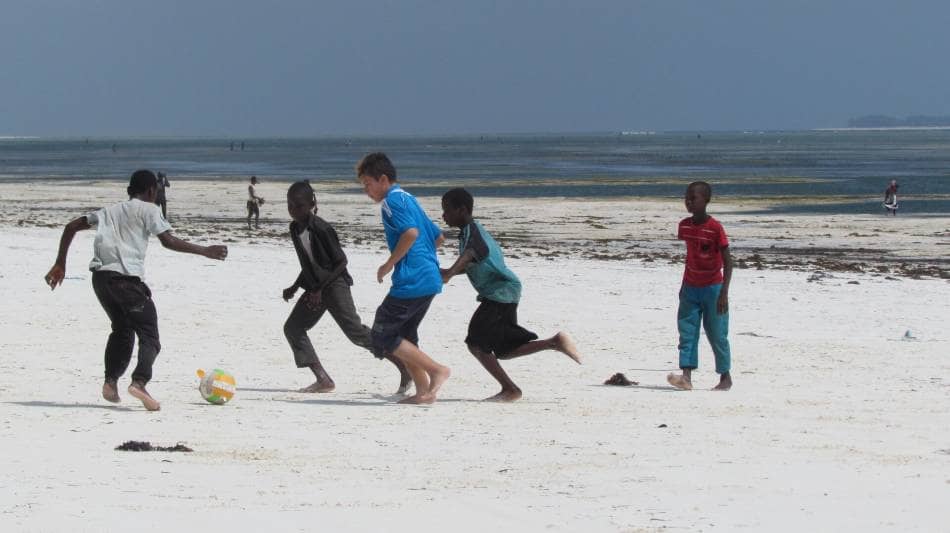
Kids should play sports for their physical benefit. Among these (courtesy of BetterHealth) are:
- Reduced risk of obesity: Obesity increases one’s likelihood to have a variety of dangerous health issues. Some of these health issues include heart disease, diabetes, sleep apnea, gout, and certain cancers. Preventing obesity is key to long-term physical and mental health.
- Cardiovascular fitness: Cardio helps reduce the risk of heart disease and helps regulate blood sugar.
- Better coordination and balance: This aspect of an active lifestyle is important because of its physical and mental health benefits. Coordination and balance help reduce injury because you’re aware of your surroundings and bodily abilities. Coordination also exercises the same part of your brain that processes information, so building on coordination is important for cognitive health.
- Improved sleep: Studies prove that physical activity improves sleep quality in a variety of ways. This includes sleeping better throughout the night, more “deep sleep” that helps the body repair brain and muscle cells, and greater sleep duration. This adds up and helps kids become better energized throughout the day!
Keeping an active lifestyle as a kid will lead to healthy adulthood.
Keep them Busy
As the other reasons in this article suggest, sports are a valuable way kids spend their time. Keeping kids busy with sports means there is less time for them to get in trouble.
From a study at UNC-Chapel Hill, physically active children are less likely to use drugs than those who aren’t physically active. Physical activity also improves self-esteem and grades.
Sports are a healthy, safe, and constructive way to keep kids busy.
Healthy Competition
Kids should play sports because they’ll benefit from healthy competition. Most importantly, healthy competition motivates kids and prepares them for real-life situations in adulthood.
In sports, playing an opponent who is performing better than everyone else can motivate you to practice more, play harder, or develop new skills. On a team sports level, kids will realize that everyone is trying to win, and they must be more prepared than their opponents.
Healthy sports competition also prepares kids for situations outside of sports. Understanding that many people are seeking admission into the same college or applying for the same job will drive one to produce their best writing, studying, research, or other work.
On a team sports level, competition plays out in real-world business scenarios. The most successful businesses do the right preparation, hiring, and marketing to beat other competitors in sales – or at the very least, stay in business and keep their people employed.
This foundation starts with healthy competition in youth sports.
Confidence
Kids benefit from sports through increased confidence and self-esteem. Whether it’s getting through a tough practice, winning a hard-fought game with your teammates, or performing well individually, positive outcomes from sports provide kids a sense of accomplishment.
But it doesn’t have to be a major event, either. Recurring physical activity builds strength, agility, endurance, and speed. Small improvements, such as lifting more weight than last week, build one’s self-esteem.
These little boosts are just enough to make kids want to do even better next time. This continuous loop of positivity will make kids feel better about themselves.
Life Lessons
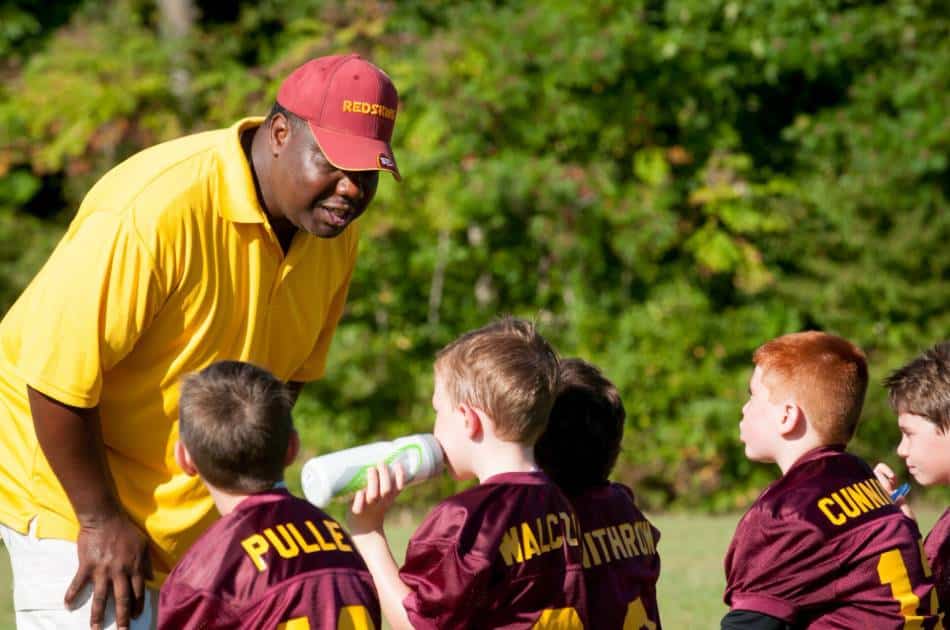
Sports play a major part in teaching life skills to kids. Among the most important life skills are practice and humility:
- Practice is how you improve. You master a craft by working hard and devoting time to practice it. Once you do a motion or activity so many times, it becomes second nature. In basketball, enough repetition will make shooting free throws a piece of cake. In school, the habit of practicing math problems will help children achieve good grades and score well on college entrance exams.
- Losing games and playing against skilled opponents can be humbling. This lesson shows that there is always someone more experienced or more polished in their craft. It may even motivate kids to become better at whatever sport they’re playing. Even when winning, practicing humility sets an example for teammates and it shows maturity.
Fun
There’s a reason that when many adults look back at their childhood, sports are among the first things they speak fondly of.
Sports are fun! Scoring a goal in soccer, throwing a strike in baseball, or even passing back and forth with teammates is exciting.
The best part is you don’t have to win to have fun. Part of the fun in sports is spending time with friends, traveling to new places, and playing in tournaments. Some young athletes like to use the moves they see their favorite professional athletes perform. At the end of the day, kids play sports because they’re fun!
Teamwork
Teamwork is a valuable skill obtained by playing youth sports. Through teamwork, kids learn that they’ll be more successful by working with their teammates and vice versa.
Teamwork also helps kids with leading, communicating, and resolving conflict. Teamwork is a skill that kids can carry on to other aspects of life. In workplaces, people work in teams, where everyone has unique viewpoints and subjects of expertise.
If you’re a good communicator and leader on the playing field, you’ll probably be effective in the workplace.
Stress Reliever
Kids should play sports because it’s a great way to relieve stress. As suggested by the Mayo Clinic, exercise relieves stress by increasing your body’s endorphins and relieving the negative effects of stress.
Why are endorphins so important?
Endorphins are chemicals produced by your body when you do things that make you feel good. Exercise is an effective way to boost endorphins and feel better.
If you also count the fun you have on top of getting a workout, it makes sense that sports are so effective in relieving stress.
Stress takes a negative toll on your body. It can cause overeating, social withdrawal, fatigue, and sadness/depression. Exercising by playing sports can help negate these effects.
Sportsmanship
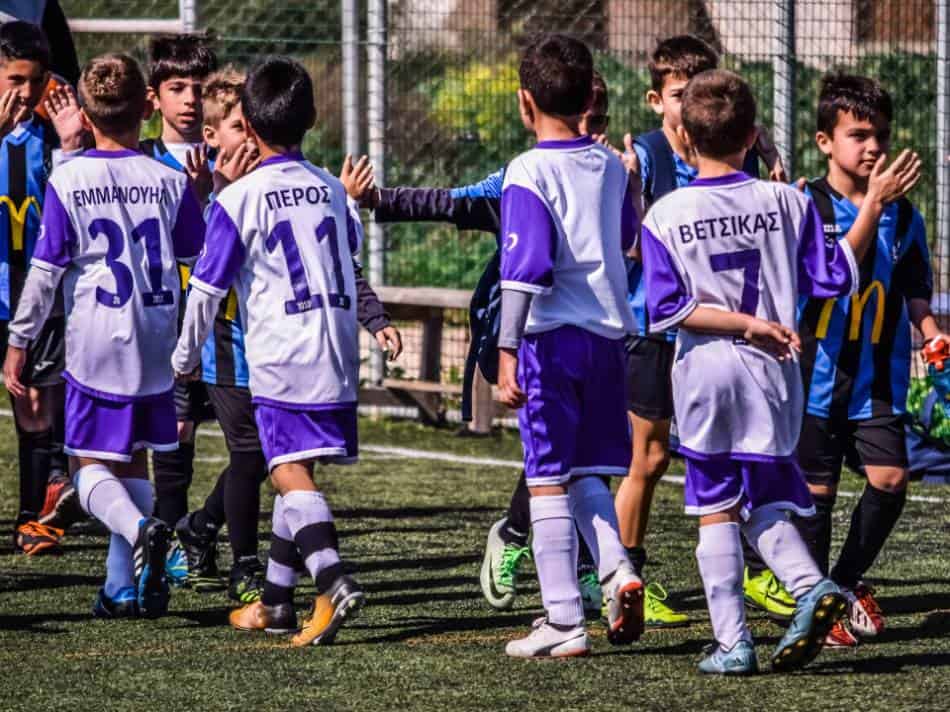
Sportsmanship reinforces good behavior, whether it’s in winning or losing, individual success, or struggles. And like many other points in this article, it will translate to life outside of sports.
Sportsmanship is demonstrated through good behavior on the field or court. There are many ways to show sportsmanship.
- Be respectful to referees, coaches, teammates, and opponents. Even if a referee makes an incorrect call, you understand that everyone makes mistakes. You follow your coach’s instructions. If play is dead and there’s an opposing player on the ground, help them back up. The only difference between you and your opponent is the jersey color. Everyone is there to compete and have fun!
- Be a good teammate. When your teammates mess up, be there for them; don’t berate them. If you are more skilled or experienced, try to help them in an area where they struggle.
- Keep your cool. In life, not everything will go your way. Things like coaching decisions, officiating calls, and other players’ performances (such as shooting percentage or batting average) are out of your control. You are, however, in control of your emotions and your effort. Showing good sportsmanship means playing hard and playing nice.
Social Skills
Kids should also play sports because of the social skills they’ll develop. Among the many social skills kids will develop through sports:
- Playing sports is a great way to make friends! This even works for shy kids. Team sports require practice and communication with teammates. You can make friends by spending time with those who have similar interests and goals.
- Learn about those with different backgrounds and interests. While you and your teammates all enjoy the sport you’re playing, none of you are identical. Playing sports provides opportunities to learn about other people. Kids will come to appreciate the diversity on their team.
- Every sports team develops its own culture. Being part of a support system with its own identity is valuable to kids learning social skills.
- Sports require kids to follow rules and adhere to structure. If you can follow the rules and social norms of team sports, you can take that discipline to other aspects of life.
Kids can use what they learn in sports to pay attention in school, follow rules, and listen to their family and friends. Plus, the relationships they build through sports can last a lifetime.
Time Management
Sports require kids to learn time management skills. A day has only 24 hours. If you budget for a good night’s sleep and a full day of school, there’s limited time to do homework, chores, sports, and outside activities.
Playing sports means there’s less time to procrastinate on homework. It means you must make the most out of the free time you have.
If a child can balance their sports commitments with other responsibilities, they’ll be more organized, productive, and successful.
Increased School Performance
Science shows that playing sports improves performance in the classroom. When you exercise, your brain receives increased blood flow. As a result, different parts of your brain function more sharply:
- Better concentration
- Improved memory
- Enhancement to problem-solving skills
As mentioned in the stress relief benefits that exercise provides, this extends to the classroom. Feeling happier, more energized, and relaxed makes for better school performance.
From a confidence and patience standpoint, sports build self-esteem and discipline. When translated to academic work, kids of a young age who play sports are more confident in their studies and more prepared to deal with setbacks, such as a bad exam grade or struggling to understand a course concept.
The benefits of sports extend well beyond physical health. Kids who play sports will perform better in the classroom, develop valuable relationships, and grow into productive members of society.
A lot of the reasons above may apply to adults as well.
